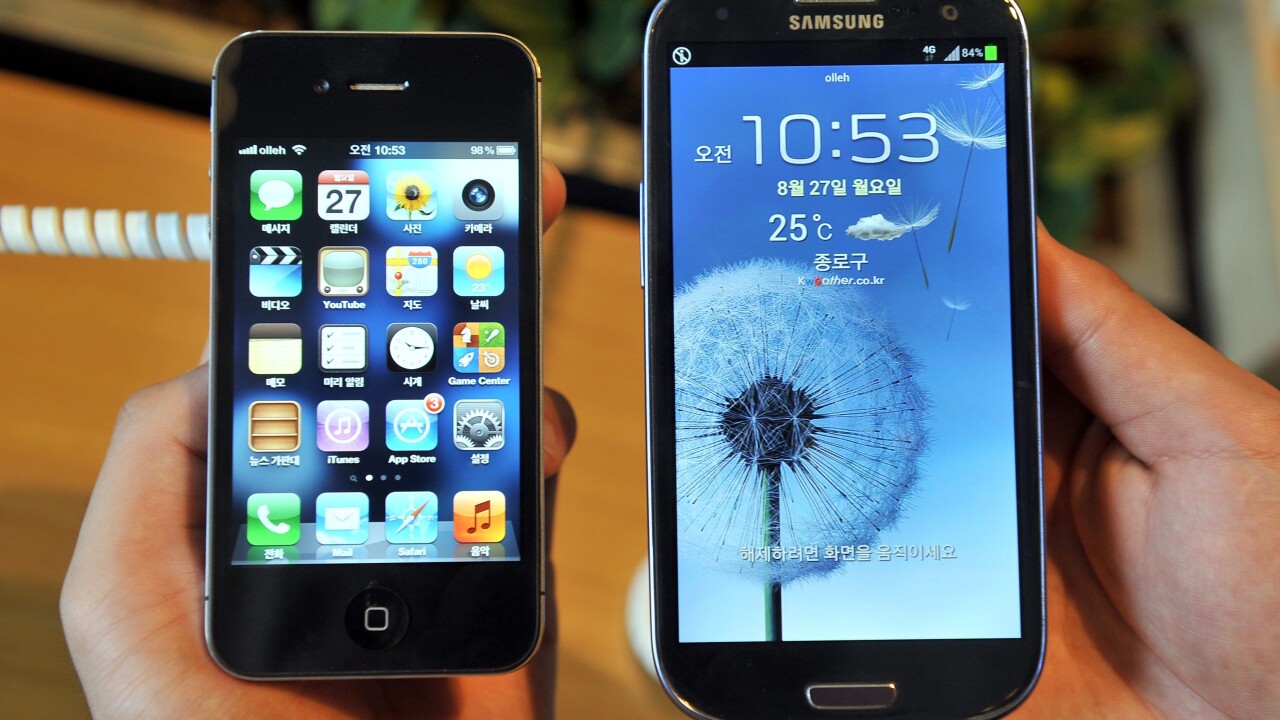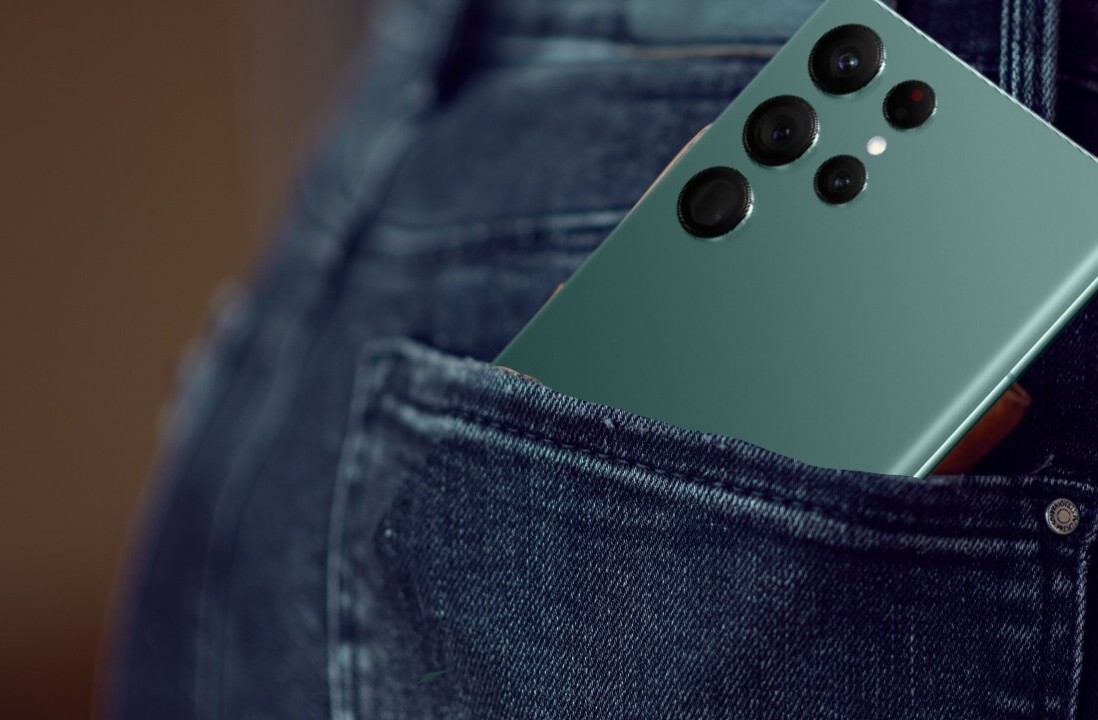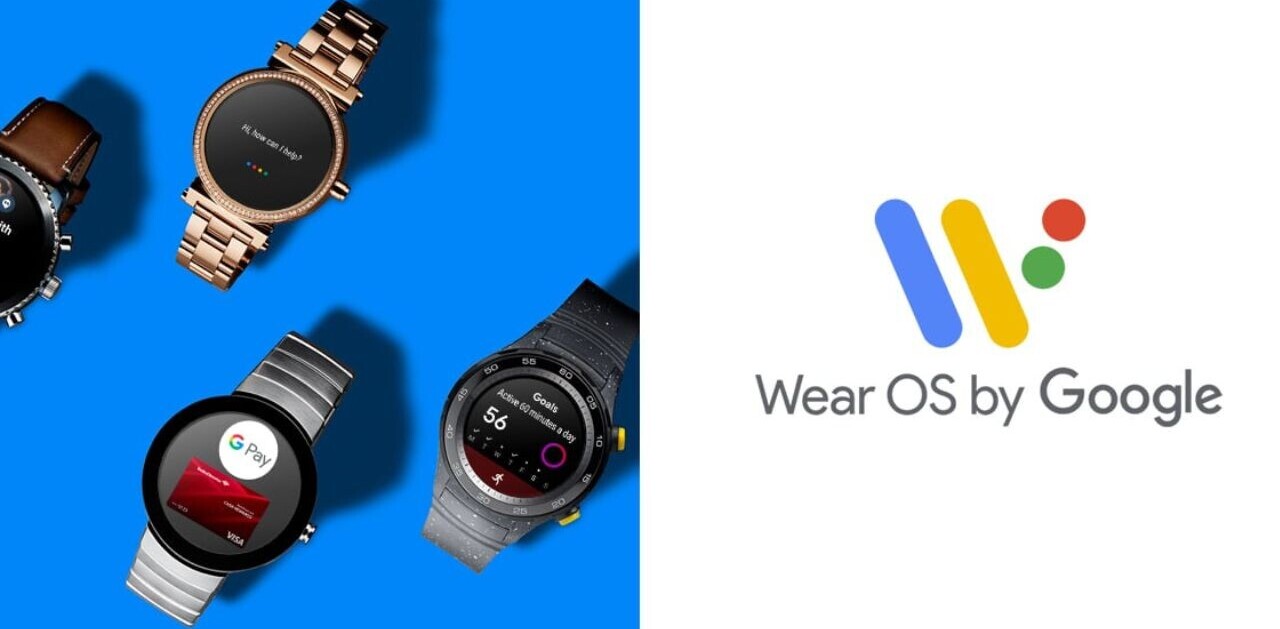
In the US, Apple’s dominance as the top smartphone OEM during the first quarter of 2013 has spilled over into April. Samsung is gaining as well, but not quite as quickly. Rounding out the top five are HTC, Motorola, and LG, all of which lost share once again.
In the platform space, Google is still first courtesy of Android, Apple is second with iOS, but the latter continues to gain on the former. For the fourth month running, Apple’s gains in the hardware space have forced Android to take a hit. Rounding out the top five are BlackBerry, Microsoft, and Symbian, none of which are gaining share.
The latest data comes from comScore, which regularly surveys over 30,000 mobile subscribers in the US. The market research firm says 138.5 million Americans owned smartphones (58 percent mobile market penetration) in April, up 7 percent since January.
Between those three months, here is how the top five smartphones OEMs fared:
As you can see, Apple gained 1.4 percentage points in terms of smartphone subscribers (from 37.8 percent to 39.2 percent) while Samsung gained 0.6 percentage points (from 21.4 percent to 22.0 percent). HTC dropped 0.8 points (from 9.7 percent to 8.9 percent), Motorola fell 0.3 points (from 8.6 percent to 8.3 percent), and LG dipped 0.3 points (from 7.0 percent to 6.7 percent).
Samsung and Apple gained a combined 2.0 points while the other three lost 1.4 points together, meaning the duo continues to steal share from OEMs even not in the top five, at least in the US. It’s worth noting, however, that this difference has been narrowing lately.
The iPhone 5 is definitely helping keep Apple ahead, as are older models of the company’s flagship product, but Samsung is managing to push forward regardless. With the Galaxy S4 announced but not available till April, we don’t expect Samsung to outgain Apple until May’s figures are out.
HTC’s continued losses don’t surprise us, and the upcoming sales numbers for its One device will likely save or break the company. Google meanwhile still hasn’t figured out what to do with Motorola, although hype around the Moto X phone is heating up, but we’re keeping in mind that the Nexus 4 failed to stop LG’s bleeding.
On the software side, Google is still dominating but as of late Apple has been making steady gains. Android has dropped for the fourth month in a row:
Once again, Samsung’s gains are not enough to offset the losses of other Android makers. Google lost 0.3 percentage points between January and April (down from 52.3 percent to 52.0 percent). Apple meanwhile increased its share by 1.4 percentage points (moving from 37.8 percent to 39.2 percent, which happens to be identical to the figure for its smartphone share).
BlackBerry was down 0.8 points (from 5.9 percent to 5.1 percent), Microsoft fell 0.1 points (from 3.1 percent to 3.0 percent), and Symbian seems to have hit rock bottom at 0.5 percent. It’s too early to see if BlackBerry will be able to make a comeback with its Z10 and Q10 devices, while Microsoft’s second gain in a row the previous month, which appeared to be the start of a trend, has been squashed.
As the Android-iOS duopoly in the US reaches a new high (91.2 percent market share), it’s worth comparing the numbers to those of Kantar Worldpanel. That research firm pegged Android in first, iOS in second, and Windows Phone in third; the exact numbers show just how varied these estimates for the US smartphone market can be.
Top Image Credit: Jung Yeon-Je/Getty Images
Get the TNW newsletter
Get the most important tech news in your inbox each week.







